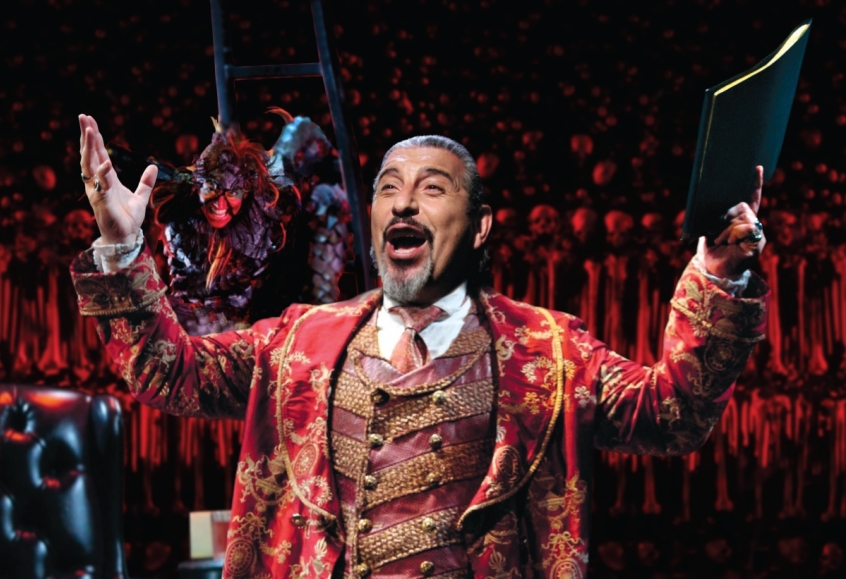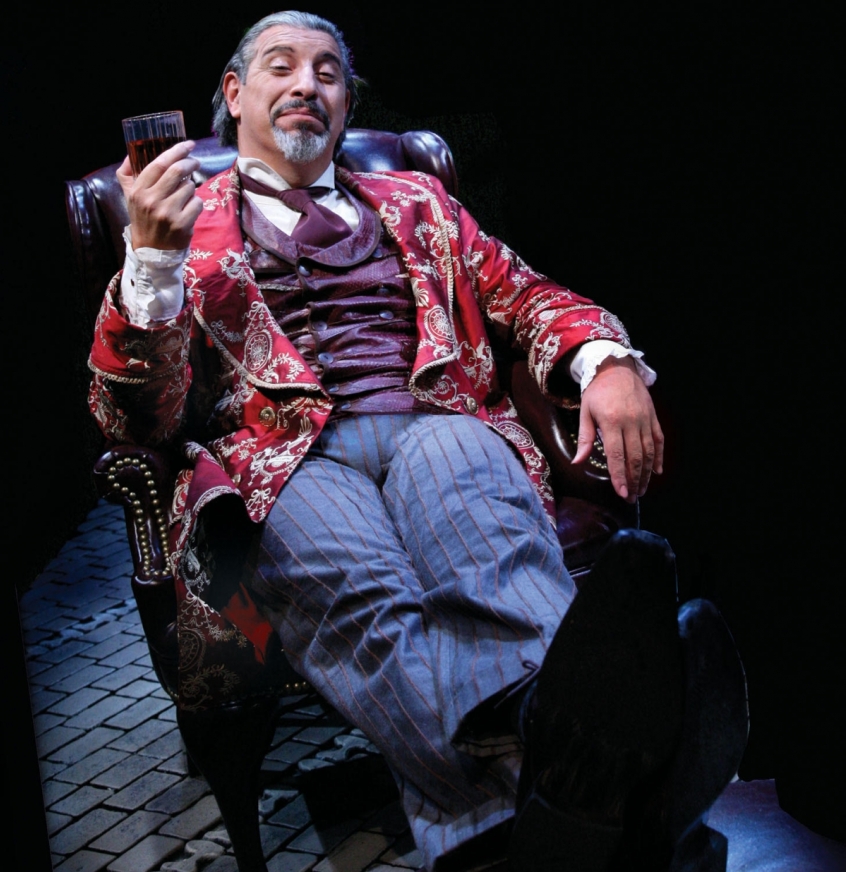
This Christmas Satan's top psychiatrist takes to the stage, and he's eager to chat. That thought might leave you confused, terrified, or both, but fear not: one of C.S. Lewis' classic works has been brought to the theatre in London, and it's well worth your time.
The Screwtape Letters is C.S. Lewis' subversive, satirical novel, written in 1942, which narrates the correspondence of a senior demon – Screwtape – to his nephew Wormwood, advising him on how to damn the soul of a human subject on Earth.
In 2006, Max McLean and Jeffrey Fiske adapted Lewis' work into a dynamic theatre production, which was met with critical acclaim and a sell-out Off-Broadway run in New York City and across the US. McLean, who plays the titular demon, now brings Lewis 'home', with the show making its European debut at the Park Theatre in London. Christian Today spoke with McLean about the significance of Screwtape, the legacy of Lewis, and the challenge of Christian artistry back in September.
As McLean summarised it then, the show presents a "gnarly inverted universe" narrated from the offices of Hell, where antihero Screwtape and his acrobatic admin Toadpipe communicate with "junior neophyte demon" Wormwood to plot the damnation of a human 'patient'. The play follows these two arcs: the world of Hell – the demonic domain of Satan, or "Our Father Below" – and Earth, where an unseen character named only as 'the Enemy' protects the patient from Screwtape's schemes. Can you guess who that might be?
The show makes its London debut with charm, wit, and ambition. Now well seasoned in his role, McLean dominates as Screwtape – essentially performing a 90 minute monologue as he evolves from calm and confident to increasingly desperate and deranged. McLean inhabits his role with the charisma and delight of a stage-magician-come-Oxford-professor, and is as subtle and entertaining as any convincing demonic anti-hero should be.
Kudos must also go to Screwtape's high energy administrator Toadpipe, ably played with ferocious frisson by Karen Eleanor White. Her performance provides important balance, giving the audience a dynamic, visual counterpart to Screwtape's word-heavy didactics. As McLean notes, a play where Screwtape just sits down writing letters would not be much fun. The tight stage space keeps the audience close to the show's key players, almost as a warm (to say the least) invite to Screwtape's demonic domain.
The show is of course a tribute to Lewis, and it's his work that provides the essence of the story. His wisdom and analysis of the human condition remains insightful and amusing. There is a lot of content to chew on though, and some may find it a little relentless, or difficult to understand. Much of the content is of such depth that it demands more attention, and time to process it, though the demands of theatre obviously make that difficult. Nonetheless the teaching we do receive is still of penetrating profundity, so repeat viewings would serve one well.

What strikes in particular, is how overtly theological, and Christian, this play is. It revolves around a man's conversion to Christianity, which (once you've reverted the play's inversion of good/evil) is clearly seen as a good thing. The seven deadly sins and their corrosive effect on humanity are a key theme, and although it's all done with intelligence and wit, some audiences may find that too preachy.
On this theme, in the post-show Q&A (an excellent, insightful optional epilogue to the performance), Mclean was asked what the relevance of such a theological work was to a secular world. McLean laughed, "I wonder, what could it be?" He went on to describe the demonic drama as being "extremely optimistic", because it gives a radical alternative to dull determinism and meaningless materialism. In the world of Screwtape, free will is real, choices matter, and good and evil are real and powerful. In that way, the message of the play really is quite subversive, and hopeful, and is to be congratulated for its effort. McLean doesn't want to preach, but to merely suggest the supernatural, and have some fun while doing it.
A story about hope narrated from the fires of hell, The Screwtape Letters gives an alternative way of seeing the world, that will challenge both the churched and the un-churched. I'd recommend bringing a non-Christian friend to see the show, only good questions and conversation could flow from it. Even Christians don't talk about the Devil that much, and that itself is worth addressing.
This is a unique, fun, and thoughtful play. It shows that you can stare evil in the face and still believe in the good, and ultimately demonstrates – with dramatic flair – that darkness can teach one much about the light.
The Screwtape Letters is now showing at the Park Theatre, London and runs until the January 7, 2017. For more information, click here.













